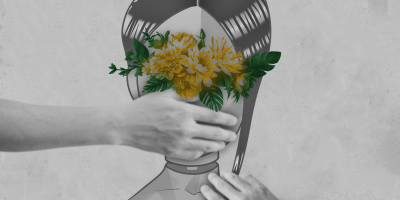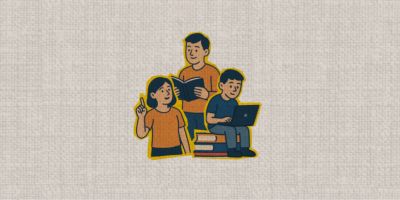
“Why are you asking about sex-related topics?” “It’s shameful to talk louder about pads and period,” “You’re a girl, don’t say a word about sex,” and “You will know about sexual life when you are old enough,” are typical comments that hang in the air as sex education in Armenia remains taboo and closed behind the doors.
In Armenia, public perception and understanding of sex education has been distorted. The misconception of sex education remained a wrapped-up thread-ball that was thrown from one generation to another. The lack of normalization and acceptance of sex education hinders us from breaking this cycle and gaining proper knowledge about sex education.
Based on Article 5 of the Republic of Armenia Law on Humans’ Reproductive Health and Reproductive Rights (2002), teenagers have the right to sex education, as well as sexual and reproductive health, and be aware of topics related to puberty, sexual and reproductive issues, have required knowledge of abortion, sexually transmitted diseases, as well as modern means of preventing human immunodeficiency virus (HIV) infections.
Besides the law, in 2008, the Ministry of Education added a Healthy Lifestyle course to the academic curriculum at schools, which aims to cover topics related to mental, physical, and sexual health and other in-depth issues regarding health. Even though the course brings light to sex education, this topic is still not entirely normalized or properly taught in academic institutions.
“In our society, sex education is perceived as a sermon on immorality,” says MD Clinical Sexologist and HIV/STI trainer Dr. Andronis Gharibyan. He mentions that sex education is not only about sex but also covers diverse topics, including human development, healthy relationships, sexually transmitted diseases, protection from unintended pregnancy, emotional and physical health, and other crucial aspects.
Dr. Gharibyan notes that in our society, stereotypes and misconceptions about sex education have been deeply rooted for years and the change would take even more years. Conservatism and religious beliefs hinder people from learning about sex education as most people are afraid that gaining more information about it will lead to promiscuity and being involved in intercourse from a young age.
Coming from Soviet times, people tend to keep conversations about sex-related topics inside their homes because talking about it outside of the walls would be shameful. Even inside the family circle, most parents avoid discussing sex education and giving enough knowledge to their children. Hence, it is up to children’s imagination and the information they get from unreliable sources.
Staying silent and avoiding conversations about sexual health will not give necessary answers but rather lead to dangerous consequences, such as unintended pregnancies from a young age, sexually transmitted infections, or psychological issues.
Dr. Gharibyan notes that sex education should be taught considering children’s age and understanding. Medical professionals and psychologists at school should thoroughly explain and provide age-appropriate materials to children. Otherwise, children will only be exposed to myths and the negative side of sex-related topics, which will scare them and cause them to form inaccurate perceptions.
He also mentions that without implementing large-scale and mandatory educational programs regarding sex education, the promotion of sex-related issues would remain incomplete. Raising more awareness and spreading precise information will change distorted perceptions and beliefs in our society.
Blogger and content creator Theresa Panchoyan shares the same perspective as Dr. Gharibyan by stating that change cannot be done drastically; it takes a lot of effort and time to shift people’s understanding and worldview toward sex education. She adds that at schools, biology teachers avoid discussing themes about sexual organs and their functions because of shame and awkwardness.
Thus, children develop stereotypes that sexual health is associated with inappropriate and embarrassing topics. It creates a mindset that sex-related issues should not be discussed aloud or in public places as it is considered taboo. “There is no safe place to open up and build a sex-related conversation based on mutual trust and understanding,” explains Panchoyan. Children are afraid of asking questions and learning more about sexual behavior and health as they would feel judged and misunderstood.
Theresa mentions that in our society, people are sometimes embarrassed and afraid to visit a gynecologist, so they look for advice and answers from neighbors or online platforms, which can be dangerous for their own health. She adds that the lack of knowledge and reinforced beliefs about sex education put more pressure on girls in our country. “We romanticize violence and make it synonymous with love,” says Panchoyan. From a young age, children do not learn about personal boundaries, so when they grow up they get into toxic relationships; moreover, they don’t know how to acknowledge it and seek help.
These are the consequences of the lack of sex education and ignorance of how to protect one’s boundaries, require respect for one’s own privacy, and take care of one’s health. If people choose to get out of their comfortable bubbles and pay more attention to topics such as private places, violence, relationships, menstruation, and sexual health, then issues will seamlessly be solved. Panchoyan asserts that “Sex education is recognizing one’s bodies, drawing and creating personal boundaries, and using knowledge to protect their health.”
Normalizing sex education and breaking down the firm cycle going around generations can lead to a healthier, intellectual, and responsible society. Over the years, people have started to give more importance and attention to sexual health and challenge existing stereotypes. However, the long-term change is still not implemented in our country, and the approach to sex education remains at a superficial level.













